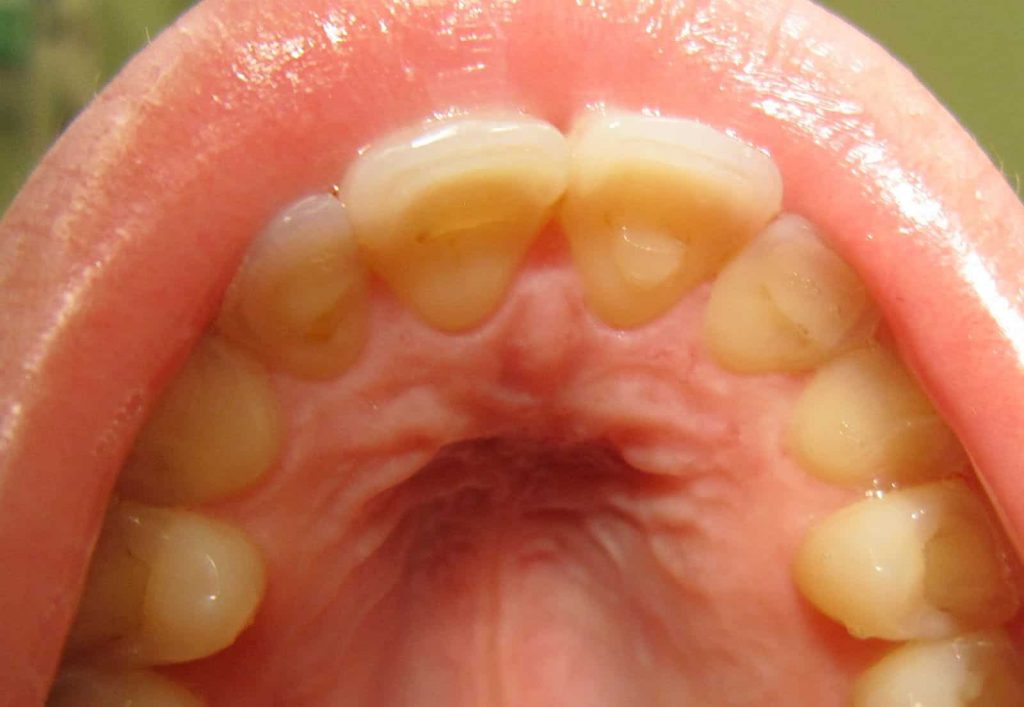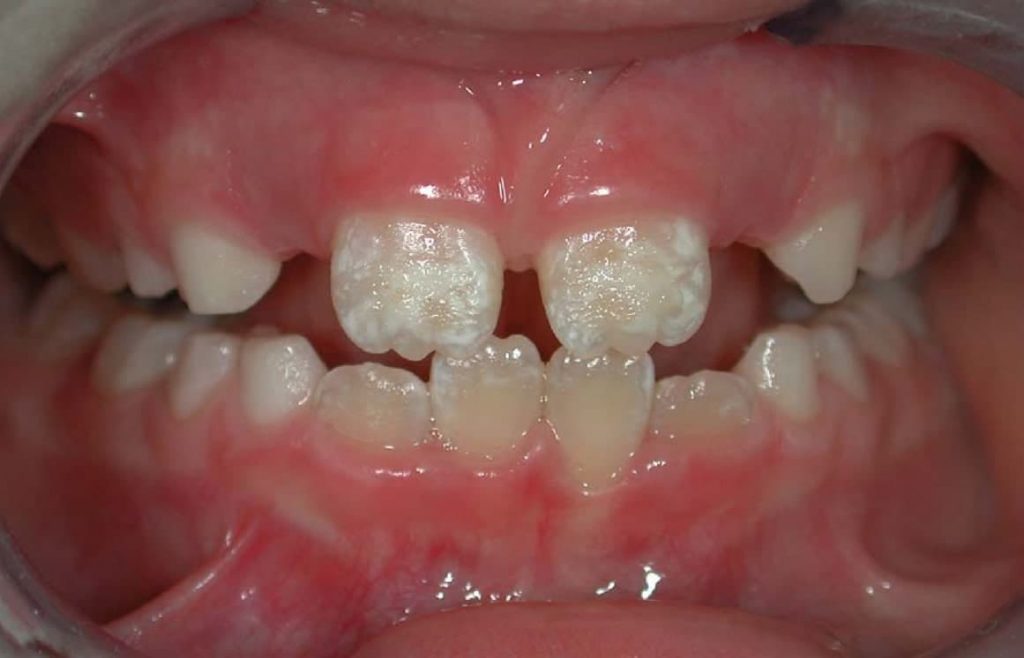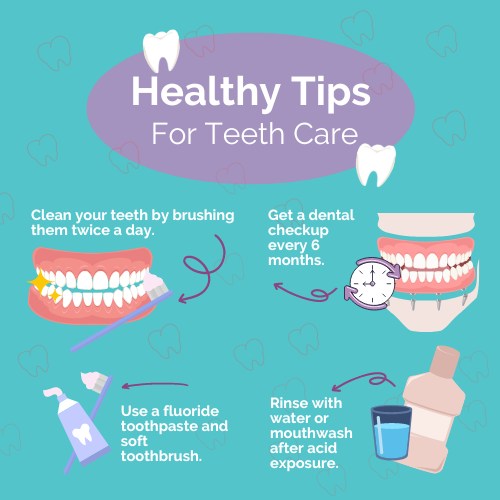If you look at your teeth closely in the mirror, you might notice that the bottom, biting edges of your teeth are semi-transparent. Many people have this, and it’s usually nothing to worry about. But when this translucency begins to spread, it’s never a good sign.
That’s because translucent teeth aren’t always normal. It can be due to enamel loss, underlying health conditions, or bad oral health habits. Left untreated, the condition of your teeth can worsen, and you may even end up losing a tooth.
That’s why it’s important to be aware of the different causes of translucent teeth so you can take immediate action.
What Causes Translucent Teeth?
Problems with the enamel result in translucent teeth. However, there can be different reasons for that:
Acid Erosion
Acid attacks can lead to the erosion of enamel. And these can come from the kinds of food you eat and drink or the acids inside your stomach (reflux or vomiting).
Of course, this doesn’t mean that exposure to acid will lead to enamel erosion every time. The saliva in the mouth neutralises the acid and repairs any enamel erosion. However, if the exposure to acids is too frequent, saliva doesn’t get enough time to make repairs.
As a result, the enamel will start to erode irreversibly, and your teeth will start becoming transparent. There are different medical conditions that can make the mouth acidic. For instance:
- Bulimia
- Gastro-oesophageal reflux disease (GORD)
- Pregnancy sickness
- Hiatal hernia

Smoking and drinking too much alcohol can also cause acid reflux. Additionally, there are certain foods that can worsen the problem, such as:
- Chocolate
- Citrus fruits (and their juices)
- Soft drinks
- Fried, fatty, fast food
- Spicy foods with chilli and pepper
- Tomatoes
- Mint
Therefore, you not only need to get treatment for the underlying problem, but also make sure that you’re eating healthy foods. Furthermore, you should consider rinsing your mouth with water after acid exposure to restore balance in your mouth.
According to a study published in the Journal of Investigative and Clinical Dentistry, mouthwashes can also help with that. And lastly, don’t brush your teeth immediately after, as that will also damage the enamel.
Dry Mouth
It’s not just a lack of fluids that can leave your mouth dry. There are many different health conditions that can leave you with a persistently dry mouth. For instance, it can happen due to Sjögren’s syndrome or diabetes.
Certain medications like antihistamines, chemotherapy, antidepressants, and anticholinergics, among others, can leave you with a dry mouth. And one consequence of it is the weakening of the enamel.
Once the enamel starts to erode, your teeth will start to look more and more transparent.
Coeliac Disease
Coeliac disease is an autoimmune condition that’s triggered by the consumption of gluten. And among other problems, it can affect your oral health.
A study published in The Open Dentistry Journal reported defects in enamel, more cavities, dry mouth, and delayed tooth eruptions as some of the oral manifestations of coeliac disease.
Enamel defects and dry mouth both increase the risk of transparent teeth. And according to the National Institute of Diabetes and Digestive and Kidney Diseases (NIDDK), tooth defects caused by this disease are permanent. Even if you stop eating gluten, these symptoms won’t get better.
Enamel Hypoplasia
Enamel hypoplasia is a condition in which there isn’t enough enamel on the teeth. As a result, the teeth are far more vulnerable to cavities and decay.

This condition can affect both the primary (baby) teeth and the permanent ones that come out later. Even taking care of such teeth can be quite difficult because simply brushing can cause sensitivity.
And while acidic foods can erode the enamel of normal teeth, that process is even quicker for hypoplastic teeth. So, you can end up with transparent-looking teeth if you have enamel hypoplasia.
Dentinogenesis Imperfecta
Dentinogenesis Imperfecta is a rare genetic disorder that affects the development of teeth. It occurs due to mutations in certain genes.
People who suffer from this condition have weak teeth in general. However, they’re also discoloured and translucent. Both baby and permanent teeth can be affected by this.
Brushing Too Hard
Your oral health depends on brushing your teeth, for better or worse. If you do too much using a hard-bristle brush, you can cause enamel erosion. And keep in mind that once the enamel has eroded, you cannot grow it back.
For this reason, it’s extremely important that you gently brush your teeth using a brush that has soft bristles. That’s because if the enamel is lost, then, too, your teeth will start looking translucent.
What Are The Signs Your Teeth Are Becoming Translucent?
Other than the obvious change in the colour of your teeth, you might also experience some other symptoms:
- Sensitivity
- Pain
- Canker sores
- Dryness in mouth
- Cavities
- Chips and fractures on teeth
Of course, this list is not exhaustive and symptoms can vary depending on the root cause of the problem. That’s why you should always consult with a medical professional.
How To Fix Translucent Teeth?
The treatment for translucent teeth will depend on the cause of the problem. Your dentist may recommend any of the following:
- Composite Bonding: By covering the teeth with composite resin, this treatment can protect teeth from any further damage.
- Porcelain Veneers: The thin shells of dental veneers can be helpful in covering the cosmetic issues caused by translucent teeth.
- Crowns: Dental crowns can provide protection to teeth that are too weakened by the loss of enamel. They will also restore the aesthetics of your smile.
- Dentures: If you’ve lost many of your teeth or they’re badly decayed, dentures can also provide full mouth restoration. There’s also the option to get them fitted on implants.
- CPP-ACP: While enamel loss cannot be reversed, teeth can be remineralised through casein phosphopeptide amorphous calcium phosphate, also known as CPP-ACP. This can be particularly helpful for hypoplastic teeth.
In addition to these treatments, your dentist may also recommend combining these treatments with enamel microabrasion or teeth bleaching. This can further improve the appearance of your teeth.
You might also be prescribed medicines for the treatment of an underlying health problem. If the problem is with your salivary glands, your dentist may advise chewing gum and increasing the intake of fluids.
How To Fix Translucent Teeth At Home?
Since the loss of enamel is irreversible and permanent, you cannot fix translucent teeth at home. That’s why the moment you notice your teeth becoming translucent, make sure to get in touch with your dentist.
Relying on ineffective “home remedies” would mean the loss of precious time because your enamel will continue to erode. You might end up needing even more extensive treatment if you don’t get help at the right time.
How To Prevent Translucent Teeth?
While it’s not always possible to prevent having translucent teeth, in some cases, good oral care can actually help you. So, make sure you:
- Brush your teeth twice a day for 2 minutes.
- Get regular dental checkups (every 6 months).
- Use fluoride toothpaste and a soft-bristled toothbrush.
- Rinse your mouth with water/mouthwash when you eat or drink something acidic.

Other than that, you also need to be mindful of what you put in your mouth. Too much sugar or acidic foods can do a lot of harm to your teeth. One way to avoid washing your teeth with them is to use a straw. But still, it’s better to consider changing your diet.
Conclusion
Some translucency at the biting edges of the teeth is usually nothing to worry about. However, if your teeth are becoming more and more transparent, it’s a sign of a health problem.
And it’s your enamel that’s being affected, which is why you need to get treatment as quickly as possible. That’s because the loss of enamel will weaken your teeth and make them more vulnerable to decay.
Keep in mind that this isn’t something that you can treat at home, you need to get the help of a medical professional. Make sure to consult one. They’ll prepare your treatment plan according to your needs.
Reviewed and approved by Dr Izbel Aksit.
